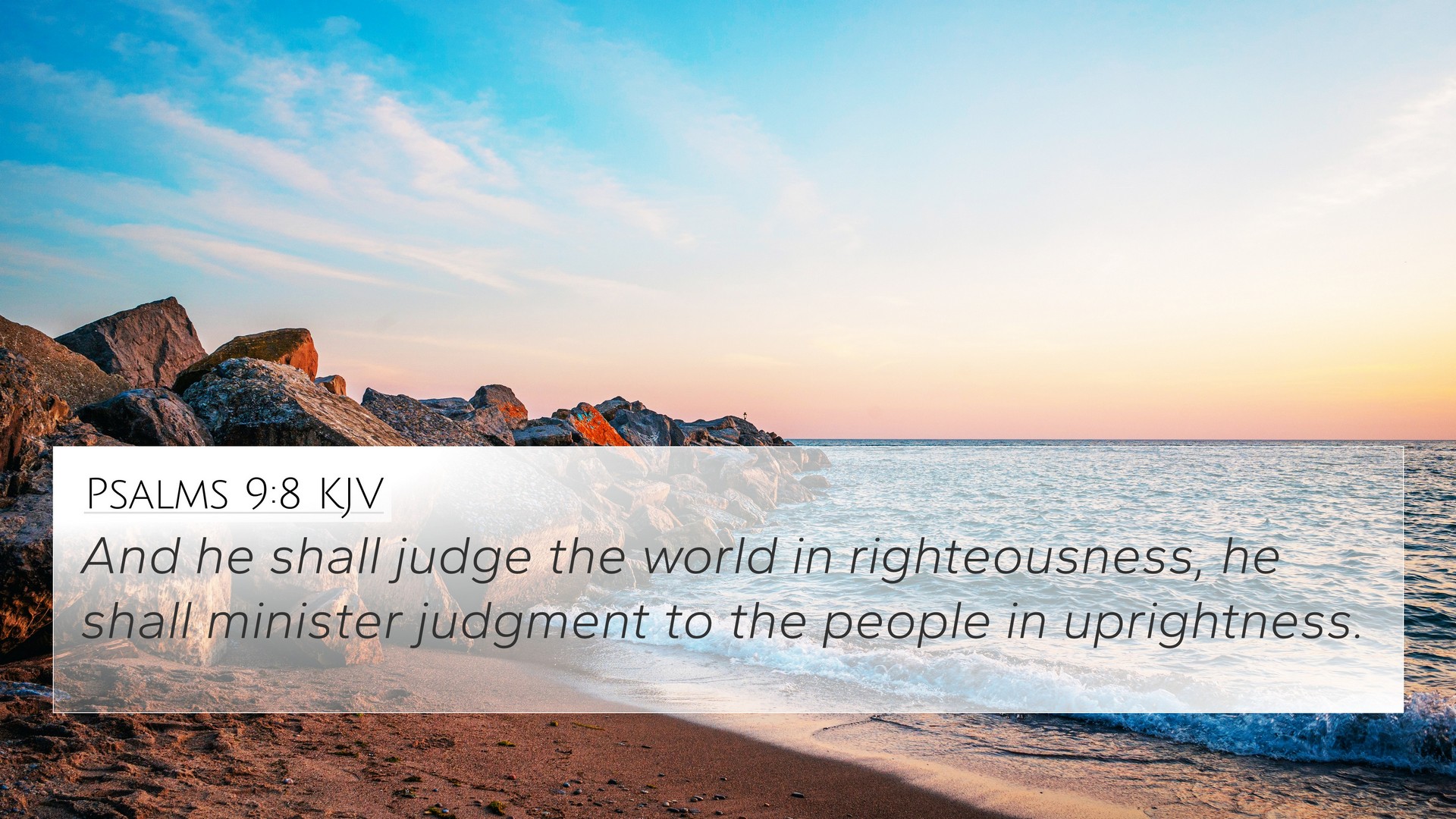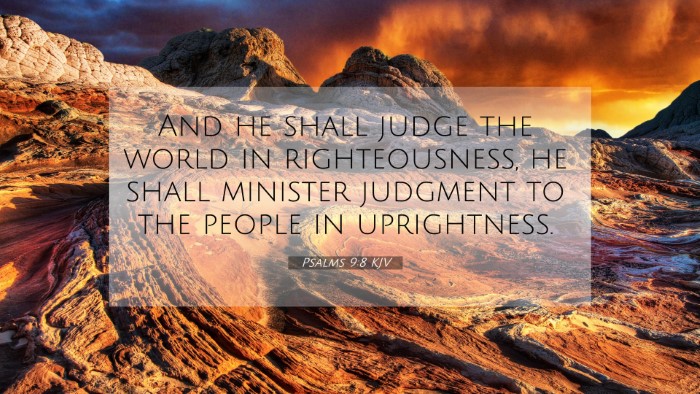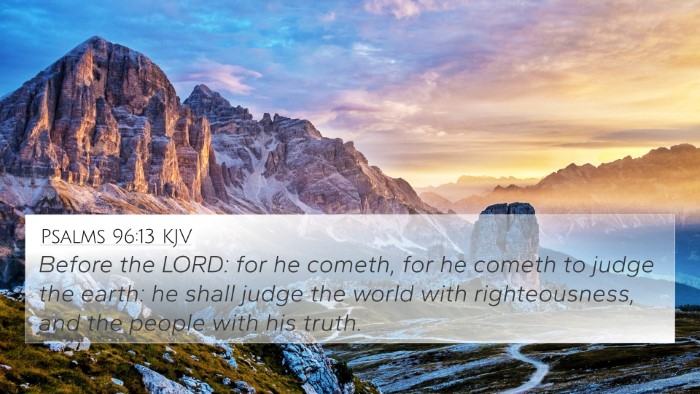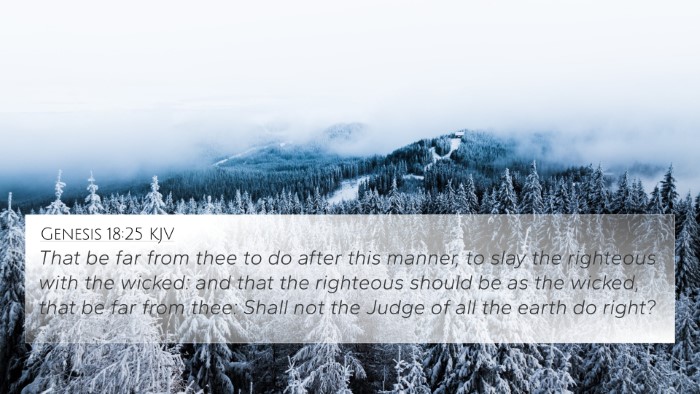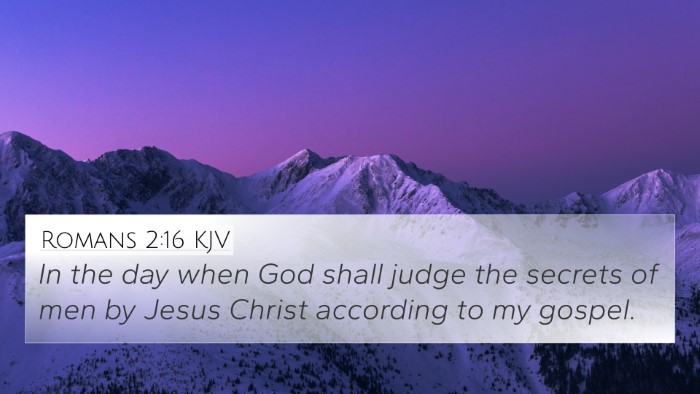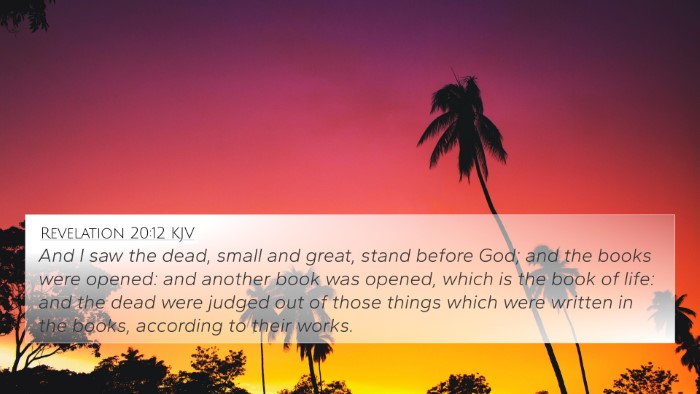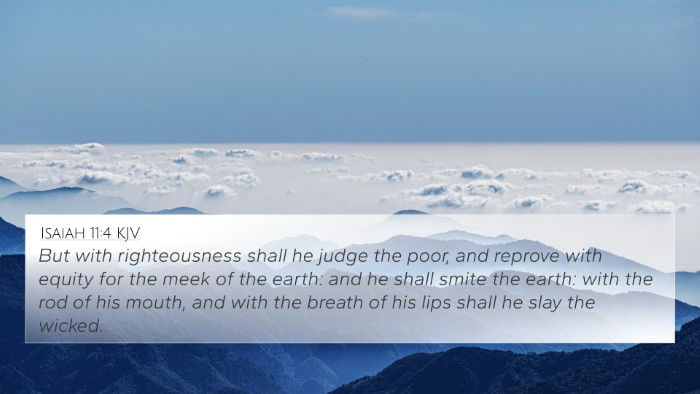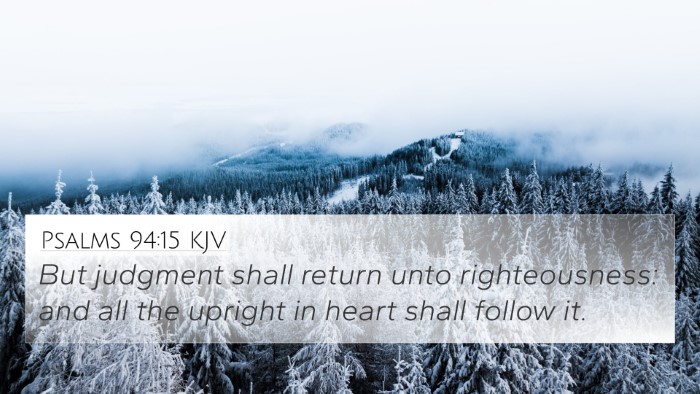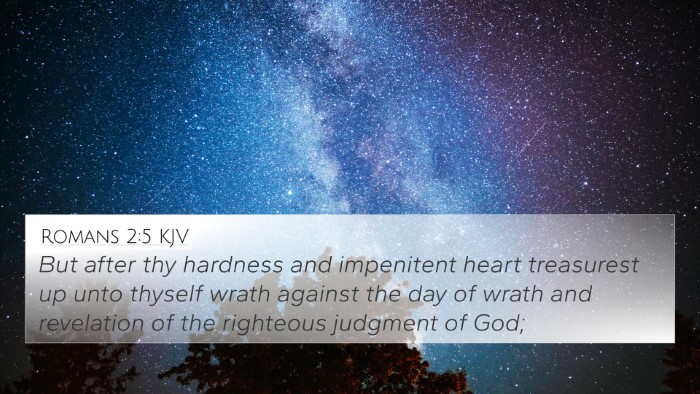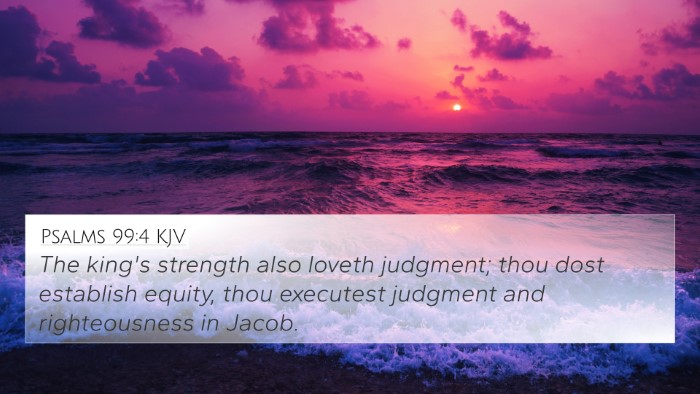Psalms 9:8 – Meaning and Interpretation
Psalms 9:8 states: "And he shall judge the world in righteousness, he shall minister judgment to the people in uprightness." This verse presents a profound understanding of God's justice and the moral order in the universe. Below, we explore the meaning and implications of this verse as understood by prominent public domain commentators.
Summary of Insights
The verse exemplifies several key themes:
- Divine Judgment: God's role as a judge emphasizes His authority over all humanity and the world.
- Righteousness: The judgment administered by God is characterized by righteousness, highlighting His moral purity.
- Uprightness: The verse assures believers that God's judgments will be fair and just, maintaining the integrity of His character.
Commentary Insights
Matthew Henry: In his commentary, Henry indicates that this verse comforts the oppressed by assuring them that God’s justice will ultimately prevail. He encourages the faithful to trust in God's righteous judgments, recognizing that even when human governance seems unjust, divine authority consistently acts in righteousness.
Albert Barnes: Barnes emphasizes the universality of God's judgment. He reflects on the idea that God's assessment of human actions transcends earthly courts and is based on an absolute standard of righteousness. The verse serves as a reminder that every deed is accountable to divine scrutiny.
Adam Clarke: Clarke discusses the implications of God’s upright judgment in the context of His covenant relationship with His people. He articulates that the assurance of God’s justice inspires faith among believers, as they anticipate a future where divine order will manifest in clear and undeniable ways.
Connections Between Bible Verses
Psalms 9:8 connects with several other scriptures that deal with God’s judgment and righteousness. Below are key cross-references that highlight these connections:
- Psalm 96:13: "For he cometh to judge the earth: he shall judge the world with righteousness, and the people with his truth."
- Isaiah 11:4: "But with righteousness shall he judge the poor, and reprove with equity for the meek of the earth."
- Matthew 25:31-46: This passage details the final judgment, reinforcing the theme of righteousness in assessing human conduct.
- Romans 2:6: "Who will render to every man according to his deeds."
- 2 Timothy 4:8: "Henceforth there is laid up for me a crown of righteousness, which the Lord, the righteous judge, shall give me at that day."
- Revelation 20:12: This verse depicts the final judgment, where all deeds are evaluated according to God's righteousness.
- Proverbs 21:15: "It is joy to the just to do judgment: but destruction shall be to the workers of iniquity."
- Zephaniah 3:5: "The just Lord is in the midst thereof; he will not do iniquity: every morning doth he bring his judgment to light, he faileth not."
- Micah 6:8: "He hath shewed thee, O man, what is good; and what doth the Lord require of thee, but to do justly, and to love mercy, and to walk humbly with thy God?"
Thematic Bible Verse Connections
The thematic connection between these verses and Psalms 9:8 reveals a comprehensive narrative about God's righteous governance. Each of these verses contributes to a holistic view of divine justice that transcends time and attests to a consistent biblical theme.
Tools for Bible Cross-Referencing
To study such connections thoroughly, consider utilizing various tools and methods:
- Bible Concordance: A tool that helps locate specific verses and similar terms.
- Bible Cross-Reference Guide: Compiles related verses for comparative studies.
- Bible Reference Resources: Books and digital references that assist in cross-referencing.
- Cross-Reference Bible Study: A method that involves analyzing related scripture to draw deeper understanding.
- Bible Chain References: Connects verses in a chain format for thematic exploration.
Conclusion
Psalms 9:8 is a profound declaration of God's righteous judgment. The insights from key commentaries, combined with its connections to other scriptural passages, enhance our understanding of God's nature and the expectations of His creation. Understanding this verse not only enriches our biblical knowledge but also fortifies our faith in God's justice. Through the use of effective tools for Bible cross-referencing, we can deepen our study and discover the continuity of God's message throughout the scripture.
